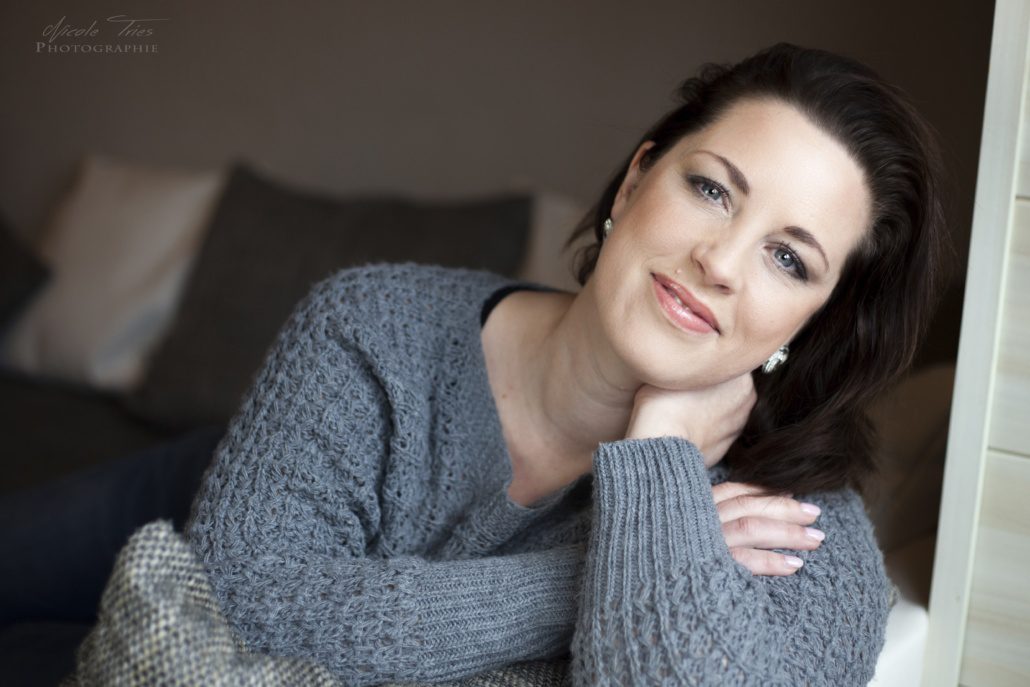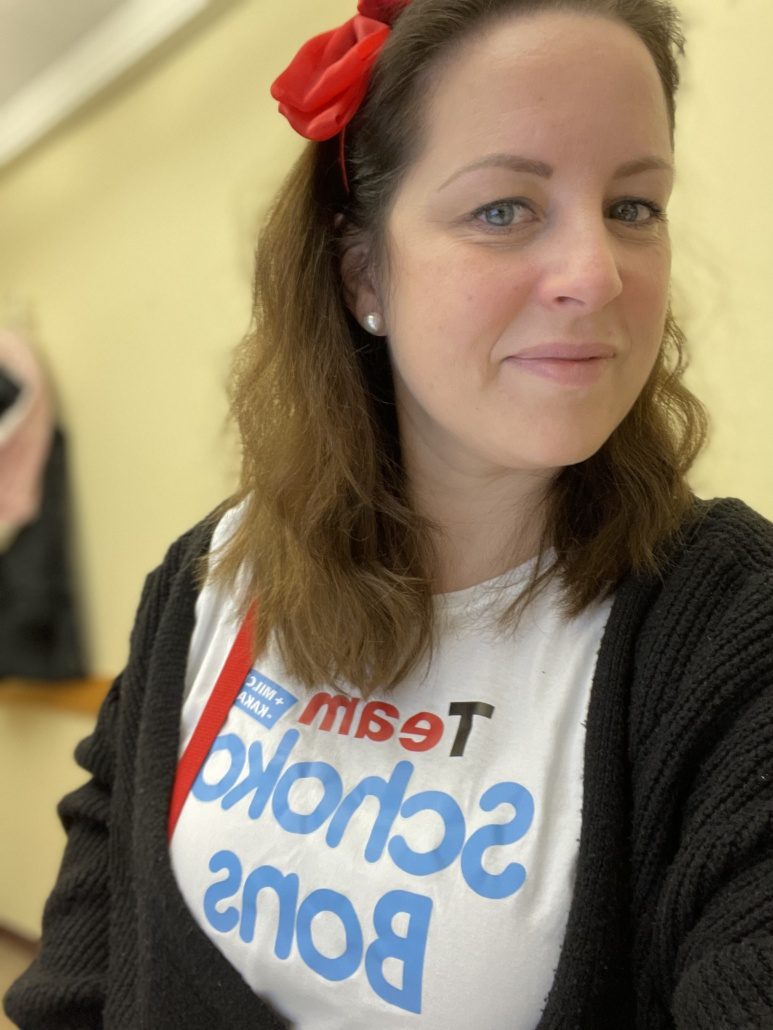Navigating the Unpredictable
Interview with Endometriosis Patient Nina
For years, Nina has faced a series of unexpected challenges. Her journey has been marked not only by enduring an ectopic pregnancy and unsuccessful artificial inseminations but also by the profound loss of her husband following a severe illness. In this interview, we delve into Nina’s medical history and explore her path toward reclaiming a sense of normalcy.
Hi, Nina; we’re grateful that you are taking the time to share your experiences with us today regarding endometriosis. Please begin by introducing yourself.
Nina: Of course, I’m Nina, a 40-year-old resident of Fischbach near Idar-Oberstein.
What does endometriosis mean to you?
Nina: Endometriosis, to me, signifies a long and arduous journey filled with enduring pain.
Can you tell us about your medical history leading up to the final diagnosis and what was the most challenging aspect for you during this entire ordeal?
Nina: Certainly, I had my first period when I was 11 years old, and even then, it was accompanied by significant pain. This was back in 1991 when endometriosis wasn’t commonly considered, and such pain was often dismissed as normal. In 2013, my husband and I decided to start a family, and I immediately became pregnant. Unfortunately, I experienced an ectopic pregnancy, which required emergency surgery. It was after this traumatic event that I received my endometriosis diagnosis.
Did you feel that the doctors took your complaints seriously and provided adequate care during that time?
Nina: Before the diagnosis, I spent years expressing my concerns about severe pain to the doctor, and I was often advised to manage the discomfort with birth control pills. After the diagnosis, the situation improved somewhat, but I still felt that the solution was primarily focused on hormonal treatments.
Could you please share what types of endometriosis you have and where the lesions were located?
Nina: The lesions were primarily found on my intestines, fallopian tubes, and ovaries. They were surgically removed in 2016, but unfortunately, I faced a significant setback. I developed endometriosis cysts again. These cysts, along with a section of my bowel, had to be removed in a 7-hour surgery. During the follow-up, it was discovered that I had a rectovaginal fistula, which required additional surgery. I was fitted with an artificial bowel outlet and had surgery every third day for four weeks. Five months later, the bowel was successfully repositioned.
Did the doctors adequately inform you about the potential complications that could arise after the bowel was repositioned?
Nina: Yes, at the time I received care from an ostomy nurse who had prior experience as an intensive care nurse.
Why do you believe that endometriosis is still underestimated as a condition today?
Nina: I think it’s because many people don’t even consider it a significant issue. Severe menstrual pain is often not viewed as abnormal by doctors, making it challenging to find a skilled gynecologist who can provide effective help.
How did your immediate environment respond to your condition both before and after the diagnosis? Did it also affect your work?
Nina: Following the major surgery in 2016, I faced substantial work-related limitations. I was granted a severe disability card, which entitled me to more leave and certain benefits. However, my employer at that time showed no willingness to accommodate these changes and even canceled my vacation. I complied with their decision and continued working. Today, I have a job in the public sector, but there are still days when I’m unable to perform my duties. I have another surgery looming, and it’s all quite challenging for me.
What kinds of limitations do you currently experience in your daily life?
Nina: I can no longer engage in activities I used to do. The extensive abdominal scar makes sports very difficult for me. Fortunately, my friends are understanding when I have to cancel plans, which is a tremendous support.
Are you still interested in having children, or have you had to let go of that desire?
Nina: I had to relinquish my dream of having children after two unsuccessful artificial insemination attempts. Moreover, my husband tragically passed away from lung cancer in 2016. That marked the end of my efforts to conceive. The process of fertility treatment took a tremendous toll on me – not just the injections but also the lengthy journeys to the fertility center were extremely draining. Then, last year, when I developed cysts again. I decided to undergo a hysterectomy.
I am genuinely sorry to hear about the hardships you have endured. It is a heartbreaking story. You were already fighting your own battle, and then your husband fell ill, and you lost him. You may have wondered why this was happening to you, right?
Nina: Yes. In early 2018, I applied for a rehabilitation program, which was promptly approved. I spent three weeks at a rehabilitation center, but I had expected it to be more beneficial. It felt that I wasn’t receiving the help I truly needed there. However, I’m determined to give rehabilitation another chance, but this time at a different facility.
So, what strategies help you manage your endometriosis?
Nina: I always strive to get plenty of rest, and when I can’t, I turn to a hot water bottle for relief.
Have you gained any specific insights over the years with endometriosis that you would like to share with other women?
Nina: My advice would be not to give up. If a doctor dismisses your symptoms, don’t let that discourage you; keep seeking answers. There will always be days when you don’t feel well, and on those days, it’s okay to take a break and try again tomorrow.
What are your hopes for the future in relation to endometriosis?
Nina: I hope for greater awareness and increased research into the condition so that alternative treatment methods beyond hormonal therapy can be developed. I find it concerning that young girls are prescribed birth control pills at the age of 13 or 14, even without endometriosis, solely for skin issues. Hormones can place a significant burden on the body, and I believe health insurance companies should offer more support in this regard.
I also believe that social media channels are contributing to raising awareness about hormonal contraception. Some women share their experiences when they stop taking the pill, increasing awareness that it is not always necessary to use hormones unless there is a compelling reason.
Nina, how have you been doing these days?
Nina: I’ve been hormone-free for a year, but the cysts have returned. It didn’t happen immediately. After the hysterectomy last July, everything was fine for a while. However, at the start of this year, I began experiencing symptoms again, and now I’m preparing for another surgery.
I wish you all the best for your upcoming surgery and hope you experience an improvement in your symptoms soon.
- “Take yourself and your endometriosis seriously. You are not imagining things!” - 7. November 2023
- Interview with Endometriosis Patient Nina - 7. November 2023
- Interview with Endometriosis Patient Nina - 7. November 2023


